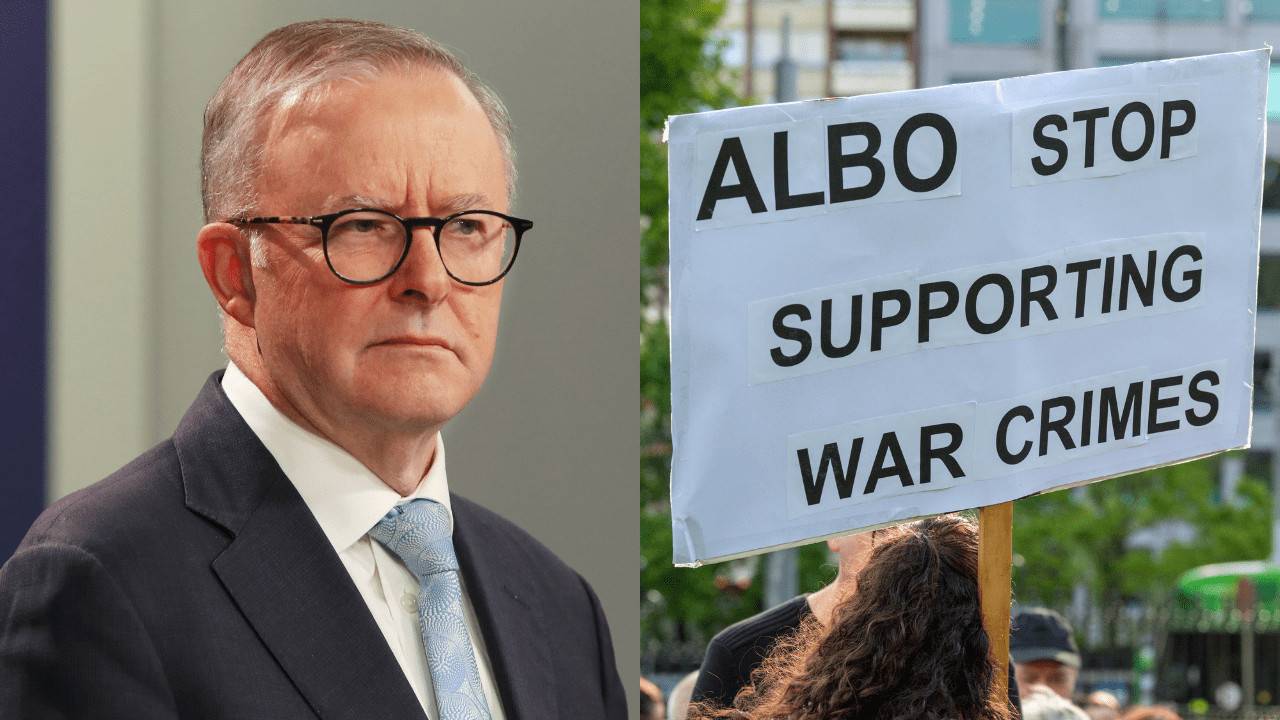Australia's Stance on Israel: A Troubling Trajectory
The recent pronouncements and actions of the Australian government concerning the ongoing conflict in Israel and its support for a UN resolution on Palestinian sovereignty have sparked significant debate. These actions, many argue, represent a disturbing and untenable trend that warrants careful examination. The situation is multifaceted, encompassing accusations of misrepresenting reports, flawed statements at the UN, and a broader question of Australia's role in a shifting global landscape.
Misrepresentation of the Air Chief Marshall's Report
One particularly contentious point involves the alleged misrepresentation of a report by Air Chief Marshall Mark Binskin AC (ret’d) regarding the Israeli Defence Force (IDF) strike on World Central Kitchen (WCK) personnel. The government's portrayal of the incident, critics contend, inaccurately presented the IDF’s actions as intentionally targeting aid workers. Binskin’s assessment, however, indicates that the strike was not deliberately directed at WCK, highlighting the importance of accurate reporting in navigating the complexities of armed conflict. His report emphasizes similarities between the IDF's approach to targeting laws and those employed by the Australian Defence Force, indicating a shared concern for adhering to the laws of armed conflict.
Key Aspects of Binskin's Assessment:
- The IDF strike was not knowingly or deliberately targeted at WCK.
- Similarities exist between the IDF's and the ADF's viewpoints on targeting laws, precautions in attack, and identification criteria.
- The Kunduz MSF Hospital incident in Afghanistan was cited as an example of unintentional operational mistakes.
The divergence between the government's narrative and Binskin’s assessment raises questions about the accuracy of official statements and the importance of upholding transparency in such sensitive matters. The discrepancy has also created a significant challenge to maintaining credibility within the international community, particularly concerning the legality of Israel's actions in defending itself against a large-scale attack. This has triggered widespread controversy, highlighting the need for a thorough and impartial review of the incident. The stakes are high in ensuring the veracity of reports relating to international conflict, as inaccurate information can exacerbate tensions and hinder efforts towards a resolution.
Foreign Minister's UN Statement and its Implications
The Australian Foreign Minister's statement to the UN on September 28 further fueled the controversy. The statement, critics allege, portrayed Israel as intentionally targeting aid workers, accepted Hamas statistics without critical evaluation, and asserted that all casualties were civilians. This, they argue, was both legally and factually flawed. The accusations of violations of International Humanitarian Law, coupled with assertions of Israel's non-compliance with ICJ orders, created significant backlash. The UN statement's lack of nuance and its reliance on potentially biased information raise questions about the objectivity of Australia's engagement on the international stage.
This statement, delivered without prior Cabinet approval and surprising key allies, also has been criticized as effectively rewarding terrorism and aggression rather than advocating for a negotiated solution to the conflict. The UN resolution itself has been described as a rambling collection of half-truths and distortions, perpetuating a narrative that ignores the historical context and the missed opportunities for a two-state solution.
The decision to support the UN resolution, even against advice from the Australian UN mission, undermines Australia’s image as a reliable partner and raises concerns about its foreign policy decision-making processes. This move has sparked widespread criticism, particularly from those who feel that it disproportionately focuses on Israel's actions without adequately addressing the root causes of the conflict and the actions of Hamas. This situation has emphasized the need for more comprehensive diplomatic engagement to address the complex issues at hand.
The UN's Eroding Credibility
The ongoing situation highlights a broader concern about the UN's declining influence. Studies indicate a concerning global trend: a decrease in democratic indicators in numerous countries. This decline in democratic governance, coupled with the presence of authoritarian states within the UN system, has arguably undermined the institution's ability to effectively address complex global challenges. The example of UNRWA, where staff members have been implicated in acts of terror and teaching materials have been linked to radicalization, underscores these concerns and raises serious questions about its continued efficacy and impartial funding. Furthermore, the role of oppressive regimes in UN bodies like the Human Rights Council calls into question the impartiality of the organization.
The lack of robust accountability mechanisms has allowed some states to operate with impunity, further eroding the organization's credibility and effectiveness. There is a significant need for comprehensive reforms within the UN system to restore its objectivity, transparency and ability to respond effectively to international crises.
Australia's Domestic Actions and International Implications
The Australian government's actions have not been confined to the international stage; domestic decisions have also drawn criticism. The refusal to issue a visa to former Israeli Justice Minister Ayelet Shaked, a decision widely seen as politically motivated, has triggered accusations of silencing opposing viewpoints. The lack of a clear rationale for the visa denial has heightened concerns and created an impression of inconsistency and political bias. In light of recent antisemitic incidents in Sydney, this decision risks emboldening extremists and could be interpreted as an indication of the government’s inability to manage social cohesion. The overall picture painted is one of inconsistent actions, raising serious questions about Australia’s commitment to international law, open dialogue, and fostering its own social cohesion.
A Path Forward: Reconciling Competing Demands
Australia finds itself in a precarious position, needing to balance its relationships with key allies, while also adhering to its international obligations. The situation necessitates a reassessment of its foreign policy priorities. Re-establishing its commitment to human rights, international law, and impartial diplomacy is critical. This necessitates a more nuanced approach to the conflict, one that acknowledges the complexities and avoids biased narratives. A commitment to open dialogue, a reevaluation of UN agency funding, and a concerted effort to promote social cohesion are essential steps towards a more balanced and responsible foreign policy. Only through careful consideration and strategic action can Australia navigate these turbulent waters and maintain its standing as a credible player on the world stage. This crucial juncture demands responsible leadership, a willingness to engage in honest self-reflection and a clear commitment to upholding the principles of justice and international law. Australia's future role in international affairs hinges on the choices it makes at this pivotal moment.
The Urgent Need for Reassessment
The ICC's issuance of arrest warrants for Israeli politicians, a move met with strong opposition from the U.S. and Israel, presents a defining moment for Australia. While the warrants are unlikely to be immediately executed, they serve as a stark reminder of the consequences of inaction. Australia's government must now decide whether it will prioritize unwavering support for its allies or adherence to international law and humanitarian principles. This decision will significantly shape Australia's relationship with the ICC and the global community in the years ahead. This will require a more nuanced understanding of the situation and a careful consideration of competing interests and values. Ultimately, Australia must choose a path that safeguards its reputation for adherence to global norms and standards. The path forward will depend on a commitment to truth, justice and adherence to the established principles of international law and diplomacy.

















